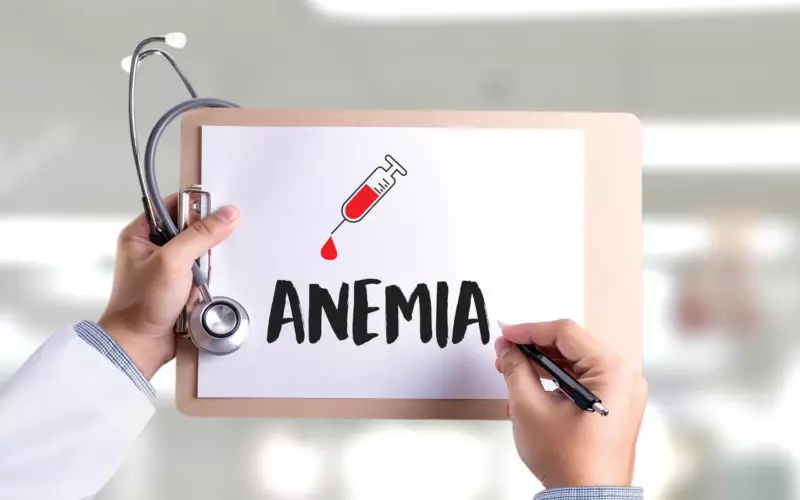
The thyroid gland is a vital organ for our health because of its primary function to produce two essential hormones, which play a significant role in the body’s metabolism, growth, and development. Those hormones are triiodothyronine (also called T3) and thyroxine (also called T4). They are responsible for our metabolic rate, or in other words, they stimulate the cells’ functions to burn more energy, and to require the intake of more energy.
When there is a problem with the production of those hormones, and not enough of them, we start noticing severe metabolic issues, such as weight gain, too slow pulse, and heartbeat, nervous system problems, lack of concentration, slow growth, dry skin, etc.
According to the American Thyroid Association, more than 12% of the US population suffers from hypothyroidism, yet 60% of the patients are unaware of their diagnosis.
One particular trace element is the core component of those hormones: Iodine. This mineral enters the bloodstream to arrive at the thyroid gland and support the production of hormones. However, as this nutrient is not synthesized in the body, we need to supply it with food.
It turns out that nowadays, it’s not easy to consume the recommended daily dose of iodine without supplementing. Still, even if we do, the absorption of it in the body is very limited.
Diet is one of the main reasons for hypothyroidism, which can also manage this health condition if we start taking care of our eating habits in time. And this article will give you the direction.
You will find the best and worst foods for hypo-thyroid function.
Keep in mind that the presented foods do NOT refer to Hashimoto’s disease (an autoimmune disorder, causing the inflammation of the thyroid gland). For this specific condition, the diet is different and stricter!
Let’s dive in!
Best foods
Fish
Fish and seafood are great sources not only of omega 3 and 6 fatty acids but also of selenium. The fatty acids prevent inflammation of the gland, and selenium stimulates the absorption of iodine in the body and supports the proper production of T3 and T4 hormones.
Learn about the 5 hormones that make us gain weight!
Dairy foods and eggs
According to a 2018 study of the Indian Journal of Endocrinology and Metabolism, increased consumption and supplementation of vitamin D has a positive effect on hypothyroidism. Egg yolks and fortified dairy foods are rich sources of vitamin D. However, try not to overconsume those foods, but rather include them in balanced amounts in your diet.
Fruits and vegetables
As fruits and vegetables are full of vitamins, minerals, and fiber, they support the proper function of the body cells, strengthen their protective barrier, and keep them healthy and well-working.
Foods rich in fiber
Weight gain is a very annoying symptom of hypothyroidism. Wholegrains, as well as other foods rich in fiber, support the proper digestion of food, balance the blood sugar levels, prevent constipation, and help us to have better control over our weight.

Foods to avoid
Gluten-full foods
According to the American Journal of Medicine, people suffering from hypofunction of the thyroid gland bear a higher risk for developing celiac disease, which is a health condition limiting the body to digest and absorb gluten. As a result, specialists claim that a gluten-free diet is a great choice for hypothyroidism and prevents the development of gluten intolerance. In fact, a medical study showed that 71% of the people who adopted a gluten-free diet, saw improvement in the production of thyroid hormone. Foods to be avoided include bread, pasta, pastries, cereals, processed foods.
Processed foods
No surprise, processed foods are full of saturated and trans fats. Those two types of fats have a negative effect on hypothyroidism because they slow down the metabolism rate and stimulate weight gain and formation of arteries buildup. Besides, processed foods like chips, crackers, cakes, pizzas, etc. bring no significant nutritional value to the body and do not support a healthy lifestyle to manage hypothyroidism.
Soy
According to medical specialists, the regular consumption of soy imposes risks for the development and worsening of hypothyroidism conditions. For that reason, people who are in the primary stage of this condition should limit their soy intake. Along with that, this food blocks the absorption of thyroxine supplements. Therefore, it shouldn’t be consumed at the same time as medication.
Disclaimer: RawBeautySource do not aim to give any medical advice. The information presented in this article is based on scientific research and personal experience and aims to give information about the topic.








